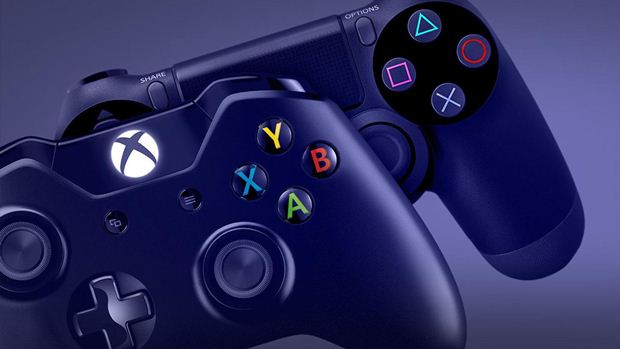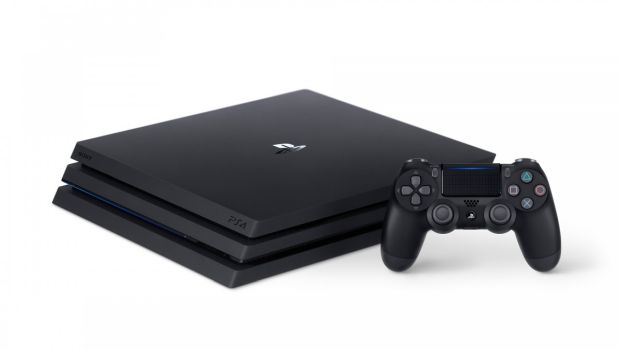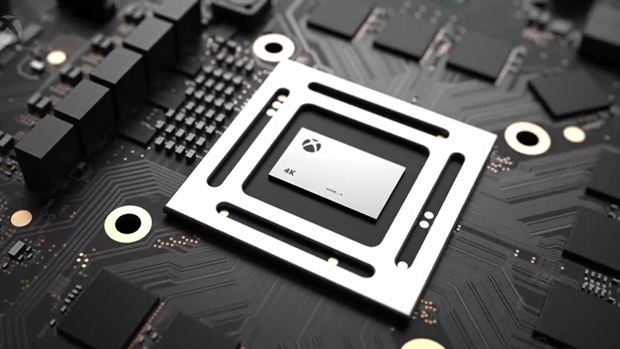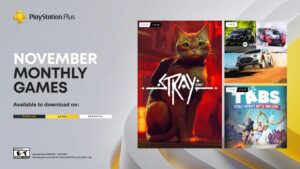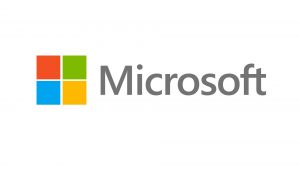
2016 was a bit of an interesting year for video games- so many things happened, most that were unexpected (for good or for bad), and a few that legitimately anyone should have been able to see coming. Dozens upon dozens of great games were released, including in places that no one would have thought to look, while loads of titles that people had had high hopes for failed to deliver.
But on the whole, in 2016, it didn’t matter what platform or company you are most a fan of- you got some great games for yourself no matter what. The PC had a banner year, with hits like Total War: Warhammer and XCOM 2 dominating discourse, but even on the smaller, indie game front, it did well for itself, with breakout hits like Stardew Valley. Nintendo had a remarkably eventful year, with the Wii U getting an undignified, early death, after one last slate of admittedly great games (Pokken Tournament, The Legend of Zelda: Twilight Princess HD, Tokyo Mirage Sessions, and Paper Mario Color Splash were all great, and I’m sure even Star Fox Zero has its fans, somewhere), but the 3DS awoke from its slumber, delivering hit upon hit, with Fire Emblem Fates, Monster Hunter Generations, Shin Megami Tensei IV Apocalypse, Dragon Quest 7, Bravely Second, Final Fantasy Explorers, Yokai Watch 2, and of course, Pokemon Sun/Moon. Even the Vita continued to subsist quietly in the background, though its biggest games – Zero Escape: Zero Time Dilemma, World of Final Fantasy, and Dragon Quest Builders – were all multiplatform titles.
But for many, 2016 was the year when the PS4 and Xbox One war, which had begun to heat up last year, took some rather interesting turns. Oh, sure, the war was fought on a lot of traditional fronts, with new, slimline console revisions, price cuts, bundles, exclusive games, and aggressive advertising- but on the whole, Sony and Microsoft traded blows in battlefields that had never been contested before.
"2016 was the year when the PS4 and Xbox One war, which had begun to heat up last year, took some rather interesting turns."
At E3 2016, Microsoft made a rather shocking announcement- going forward, all Xbox first party games would also be available on PC day and date, as part of what is the most ambitious Cross Buy program ever attempted. The larger implications of a move like this are clear – Microsoft are attempting to build a gaming ecosystem across platforms, with Xbox itself becoming a hardware agnostic brand more than a line of fixed hardware consoles – and not too far in the future, we may see Microsoft in a dominant position in the industry because of this move. But in the here and now, it meant, and it means, that Microsoft no longer have any exclusives for the Xbox One at all- all games are available on at least the PC.
However, Microsoft were banking on something else, they were banking on there being little overlap between the PC and console gaming market, they were banking on the halo effect around their gaming efforts, with success on either Xbox or Windows feeding into the success of the other, and reinforcing it in the process, and they were just counting on regaining goodwill. Their gambit appears to have worked- because as much as the Xbox One now lacks ‘true exclusives,’ its sales saw a spike in the months following E3, with the Xbox One even managing to beat out the PS4 in several key territories for several consecutive months.
The sales spike can be attributed primarily to the Xbox One S, which was the mid cycle slim line revision that Microsoft introduced for their console, and which transformed their system from the ugly duckling to the beautiful swan- the Xbox One S is a slim, svelte and sexy machine, that is shockingly smaller than the original, with all around improvements on the original design, while adding several new features, such as HDR compatibility, 4K output, and a UDH Blu Ray drive for media playback. It was a complete and total win, and it gave Microsoft, finally, an appealing machine on the market that consumers were actually excited to buy. The Xbox One S is probably going to be the benchmark by which we measure all mid cycle revisions for consoles going forward.
The release of the Xbox One S coincided with several key exclusives for the Xbox One releasing, too- while Quantum Break was a mix bag earlier in the year, the twin launches of Gears of War 4 and especially Forza Horizon 3 propelled interest in the Xbox One to probably the highest it has ever been, finally giving would be buyers an exclusive that looked to be an absolute must have, and that simply wasn’t available on competing platforms.
"The Xbox One S is probably going to be the benchmark by which we measure all mid cycle revisions for consoles going forward."
It also helped that Microsoft continued with their push to be as gamer friendly as possible- they allowed mods to be available on the Xbox One with little to no restrictions, they continued improving their backwards compatibility offerings on Xbox One in quality and quantity, with several key Xbox 360 titles now being playable on Xbox One, and playable far better than they were on their native console. But perhaps, most importantly, Microsoft finally opened up Xbox Live earlier this year, allowing for full cross platform play between Xbox, and any other gaming service on the market.
In contrast, Sony is dropping the ball in a few areas such as their questionable policy towards the availability of mods on the PS4, ultimately allowing them to be available in a vastly truncated, stripped down form on the system. They raised the price of PSN without explanation, they delayed several major games into next year, they offered a Slim console revision that ultimately looked cheap and highly unappealing, and they continued not offering any form of backwards compatibility or digital continuity to their customers.
But all was not bad on the Sony front, no matter what first appearances might indicate- for instance, on the games front, arguably the most important one, Sony dominated this year, with the release of Rachet and Clank earlier in the year, followed by the release of the incredible Uncharted 4, capping the year off with the surprisingly poignant The Last Guardian. You buy a console to play games, and Sony were certainly firing on all cylinders on that front this year.
But Sony’s true focus this year was not on games, or even on competing with Microsoft- it was squarely on the future, as Sony forged on ahead with several forward thinking ideas, and a whole lot of new technology. Chief among these was the PlayStation VR, Sony’s throw of the gauntlet into the VR arena. The PlayStation VR looks to be a highly impressive piece of kit, especially for the price that it is available at, although it currently lacks any compelling software to justify a purchase.
"Sony’s true focus this year was not on games, or even on competing with Microsoft- it was squarely on the future, as Sony forged on ahead with several forward thinking ideas, and a whole lot of new technology."
Another bit of new technology from Sony was something that no one had expected, not so soon after the launch of the PS4- a brand new console. The PS4 Pro is a new console that iterates on the hardware in the PS4, offering a more powerful console that is capable of better graphics and 4K resolutions, while also maintaining full intercompatibility with the existing PS4. It is currently the most powerful home console ever, and if you want a PS4, you should look into spending the extra money and just picking up a PS4 Pro.
Amazingly enough, however, Sony managed to botch even the PS4 Pro- their messaging for the new console was all over the place, with Sony failing to communicate why owners of the standard PS4 should even bother upgrading to the PS4 Pro at all, and they had a misguided focus on pushing 4K with the new system- misguided, because the PS4 Pro is not powerful enough to push native 4K resolution for most games, having to resort instead to an admittedly ingenious upscaling technique called checkerboard rendering, and also because the PS4 Pro lacks compatibility with UHD Blu Ray drives, meaning it can’t play physical 4K media either- which comes off as a bit surprise, to be honest.
Even all that aside, the simple fact that the PS4 Pro plays all PS4 games better should have been a simple enough pitch- and yet, that doesn’t work either, since so many games that get PS4 Pro patches somehow end up performing worse on the more powerful console than they do on standard PS4 systems. It has just been a mess all around- and this is without getting to the elephant in the room.
You see, while the PS4 Pro is the first iterative home console ever released, it was not the first one ever announced. That honor goes to the Xbox One Scorpio, which Microsoft announced at E3 this year. The Xbox One Scorpio looks to be an update to the standard Xbox One in the same way as the PS4 Pro is an update to the PS4, at least conceptually- and conceptually is as far as the similarities go. While the PS4 Pro is a highly conservative and modest update, Microsoft went ham with the Scorpio, offering as much as 6TFLOPs of GPU processing power. Which is absolutely crazy and insane, and which gives Microsoft the most powerful console ever made when the Scorpio launches next year, ending the PS4’s power advantage over Xbox once and for all.
"The Scorpio doesn’t exist yet, and we don’t even know what its specs will be beyond the 6TFLOP target for the GPU, but the fact that the possibility of a far more powerful system existing has been raised means that the PS4 Pro was, to many developers and gaming enthusiasts, obsolete before it was even announced."
Discourse around iterative consoles has been dominated by the Xbox One Scorpio, and all discourse around the PS4 Pro has been overshadowed by the impending new machine- which is an ingenious trick by Microsoft. The Scorpio doesn’t exist yet, and we don’t even know what its specs will be beyond the 6TFLOP target for the GPU, but the fact that the possibility of a far more powerful system existing has been raised means that the PS4 Pro was, to many developers and gaming enthusiasts, obsolete before it was even announced- Microsoft have managed to win the war for mindshare for iterative consoles before their iterative console ever released.
And really, that perhaps is Microsoft’s greatest victory this year- Sony ended up launching three new key pieces of hardware, with PlayStation VR, PlayStation 4 Slim, and PlayStation 4 Pro, as well as two of their most acclaimed games ever with The Last Guardian and Uncharted 4, and yet somehow, Microsoft ended up dominating the news cycle anyway. Whether it was because of their continued backwards compatibility initiative, or their ambitious Xbox Anywhere program, or the Xbox One S, or their push for cross platform play, or the impending Xbox One Scorpio, or whether it was because of so many consumer friendly moves by Microsoft, such as some great games on Games with Gold, free games being offered to everyone as a goodwill gesture, the inclusion of the UHD drive in the Xbox One S, or the lax restrictions placed on the availability of mods on the system, Microsoft generally ended up winning a lot of brownie points this year.
Did they win 2016? I want to argue that they won in terms of simply doing more and having more of an impact. But if, in the end, you were simply looking for better games – and really, the games is what we’re all in this for, the games are really all that matter – then, yet again, PlayStation 4 was the winner in 2016. Yes, Forza Horizon 3 is amazing, and Gears 4 turned out surprisingly good, but neither came close to matching the trio of Ratchet and Clank, Uncharted 4, and The Last Guardian, not to mention the PS4’s continued dominance in the quantity of third party games, and quality (in terms of it playing them better).
But even if Sony won 2016 in terms of games, the ground is shrinking rapidly beneath them. Going forward, the hope is that Sony get their act together again, and not be so complacent, because as things stand right now, Microsoft is on the cusp of actually roundly beating Sony in all categories come 2017.
Note: The views expressed in this article are those of the author and do not necessarily represent the views of, and should not be attributed to, GamingBolt as an organization.








